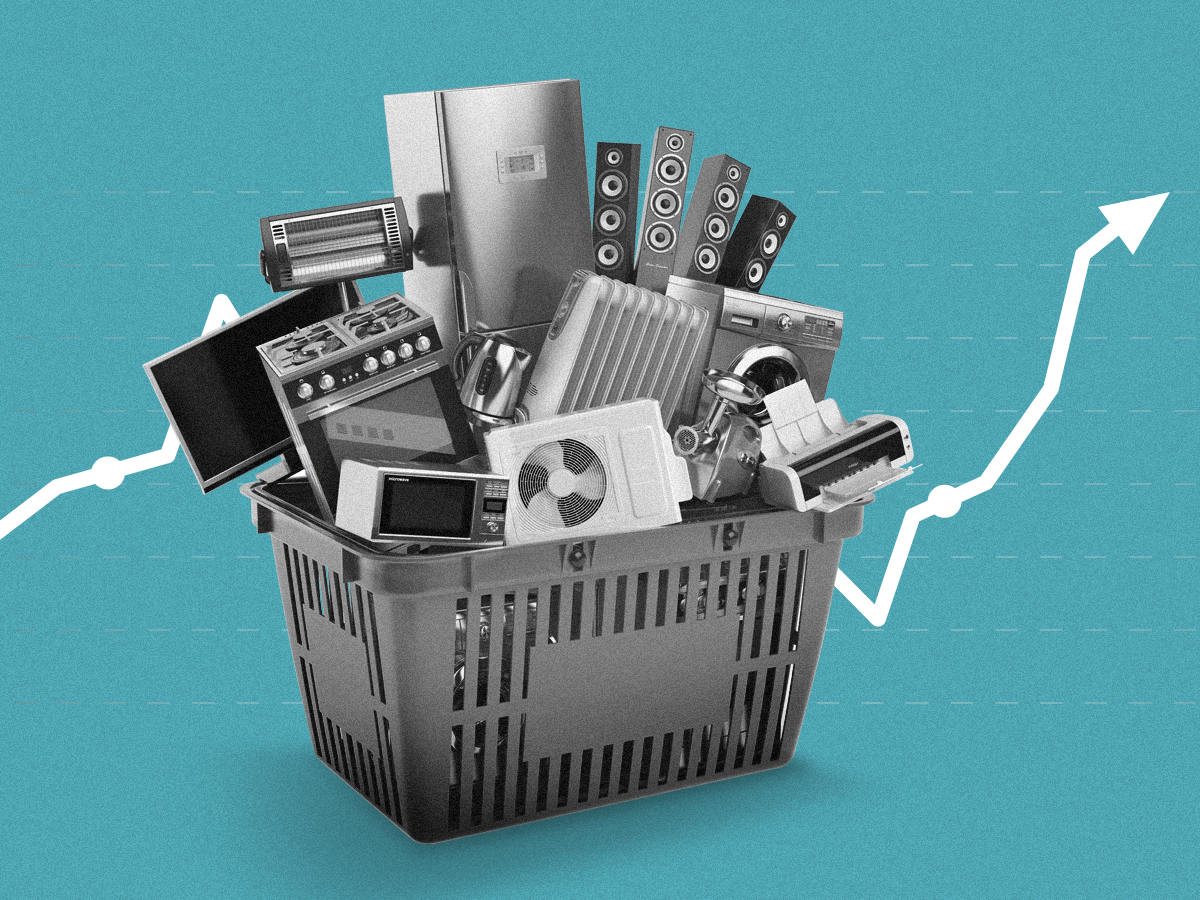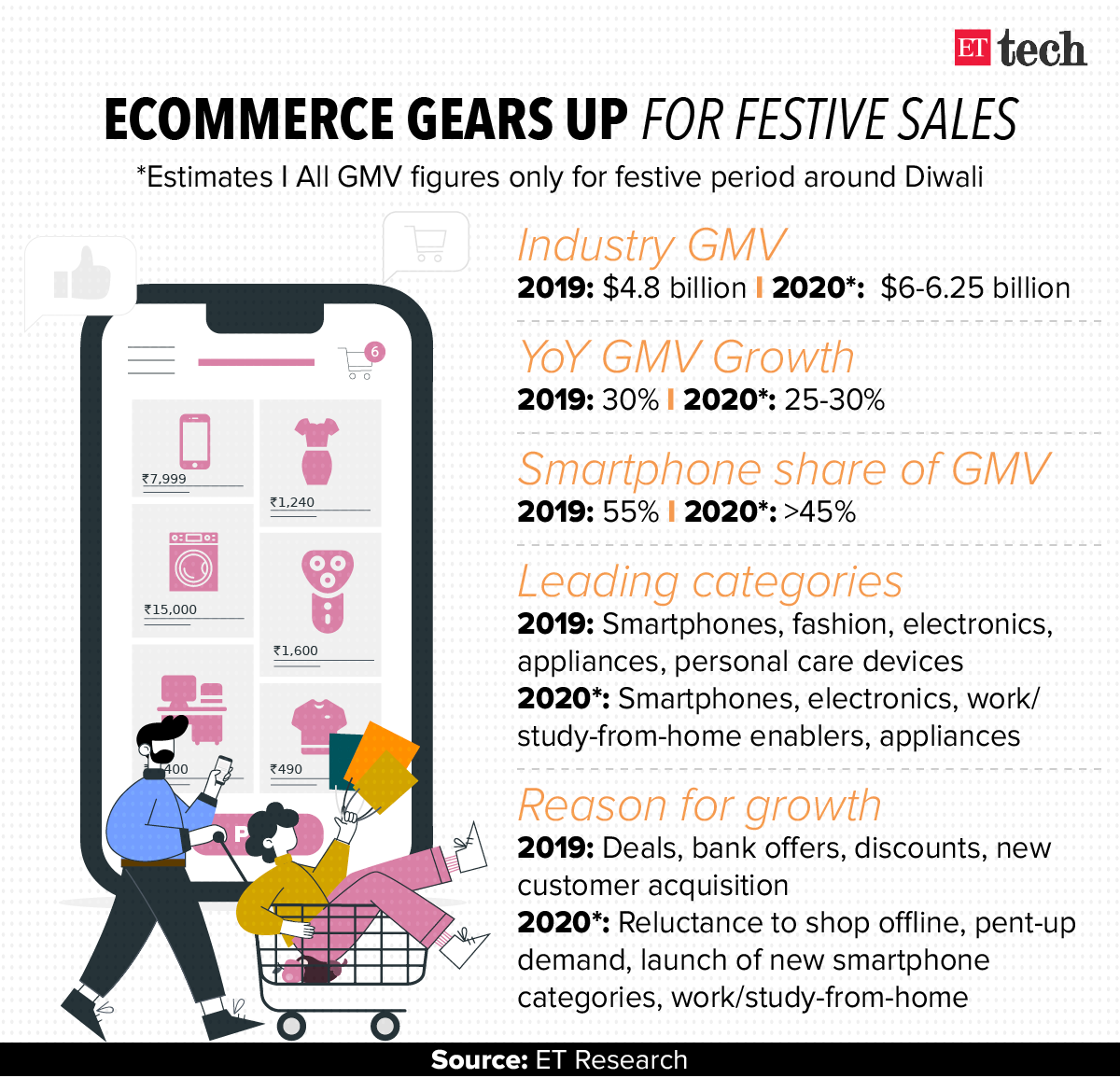
Brands selling smartphones, appliances and electronic accessories are among those gearing up for a strong spike in online sales during the upcoming festive season, according to company executives, analysts and sellers who estimate an increase of nearly 30% over last year’s sales.
New product launches and an almost two-fold increase in the number of online shoppers—triggered by the pandemic—will drive this trend, the people cited above told ET.
New models of smartphones, work-from-home and study-from-home enablers are expected to drive sales, while apparel and fashion sales will still remain a little weak, according to executives at online marketplaces.
Providing affordable merchandise and catering to the rising number of customers in small towns will be the focus of these ecommerce platforms.
At the start of the lockdown, “brands were unclear about online demand, but (after) the Independence Day sale, everyone has figured out that there is going to be a definite surge in orders,” said Aman Gupta, cofounder of electronics accessories brand boAt.
Top marketplaces Amazon and Flipkart recorded sales of between Rs 5,600 crore -Rs 6,000 crore, combined during their Prime Day and Big Savings Days events in August, even as India battled economic disruption caused by the lockdowns to stem the spread of Covid-19.
Typically, online marketplaces record heightened sales during the festive period stretching from Dussehra in October till about Christmas. Flipkart’s annual shopping festival The Big Billion Day is held around the same time as Amazon’s Great Indian Festival sale in October. Last year, the two mega etailers recorded about $3.5-3.7 billion in sales in the highest-selling six days, a rise of 33% over 2018. In the overall 2019 festive sale period, these platforms clocked $4.8 billion in sales.
New entrants
But this year, the boost in online commerce is expected to come from new entrants—online-only brands and from traditional offline retailers migrating to ecommerce platforms—as well as local shops. For instance, Goldmedal Electricals, founded in 1979, which sells through traditional retail, said it will explore online marketplaces to sell a greater range of its products this year.
“This festive season, our focus will be on enabling sellers to accelerate their growth and to help them get back on their feet,” a spokesperson for Amazon India said.

Flipkart, on the other hand, views its Big Billion Day sale as a platform to “enable lakhs of sellers, small and medium businesses, artisans and women-owned businesses access the national market,” a company representative said.
Brands reckon the back-end supply chain management and timely demand forecasting will be critical to success this year.
Bharat Kalia, cofounder of appliance brand Lifelong Online, is expecting a three-fold increase in sales compared to the last festive season boosted by the launch of new categories like sports and fitness.
Analysts said smartphones will continue to be the top category to watch out for with the share of online sale of smartphones at 45% in the second quarter of the financial year. “We don’t see offline demand for smartphones recovering until the second half of next year, given that the cases of Covid are continuing to rise,” said Neil Shah, Vice President of Research at Counterpoint.
Home, appliance, sports, fitness and health are categories that will also record a spike in sales while the outlook for fashion remains unclear. “If weddings and occasions start resuming, then fashion will get a bump, otherwise it will continue to be weak,” said a founder of a top fashion brand.
Ramping up supply chain
Meanwhile, online marketplaces have started ramping up their logistics capabilities.
Snapdeal has expanded its logistics network by opening eight new centres at manufacturing hubs in areas like Rajkot, Agra, Mathura and Mumbai. This takes the total count to 23 centres across the country. “This ensures faster pickup from the sellers…and has become all the more important due to Covid-19 related restrictions,” a Snapdeal spokesperson said.
For platforms like Snapdeal and Paytm Mall, which don’t compete on high-value smartphone sales, growth is likely to be driven by local selection. “..we believe that categories including home electronics, work-from-home essentials, athleisure wear, and home and kitchen products will do well,” said Abhishek Rajan, COO, Paytm Mall.
As more value conscious shoppers from smaller towns congregate on online platforms, average order values have dropped by as much as 25-30% experts said. “These new buyers are value conscious and are not going to spend the same kind of money as experienced buyers until they reach a certain trust level,” said Ankur Pahwa, Partner at EY.
Leave a Reply